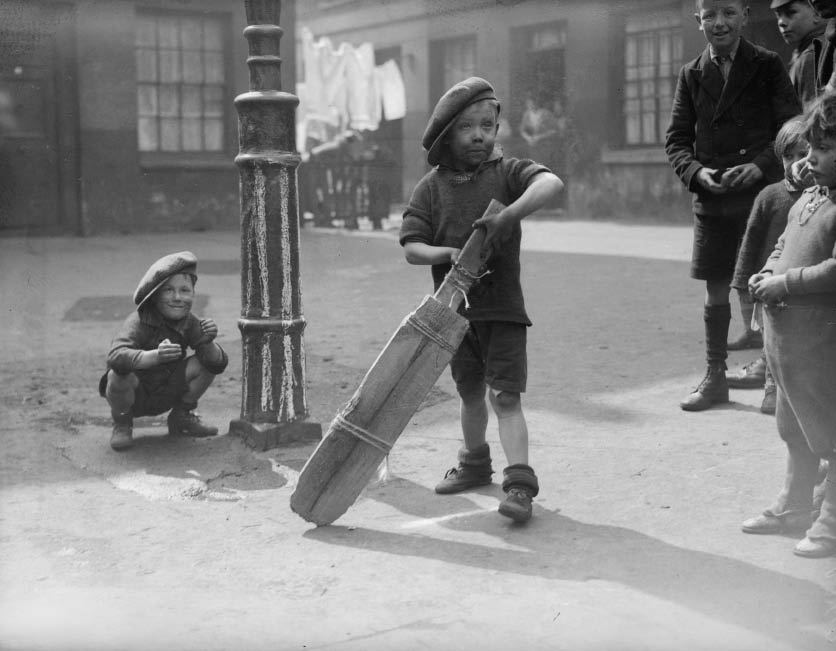Many attempts have been made to portray the ‘Roaring Twenties’, or the ‘Gilded Nineties’, or the something-or-other sometime-else, but in truth the 1930s is one of the few decades that fits neatly into a nice round summary, with the Great Depression at one end, the second world war at the other.
Many attempts have been made to portray the ‘Roaring Twenties’, or the ‘Gilded Nineties’, or the something-or-other sometime-else, but in truth the 1930s is one of the few decades that fits neatly into a nice round summary, with the Great Depression at one end, the second world war at the other. The 1920s had seen a sharp recovery from a war in which 30 per cent of all men aged 20–24 had died. The following 10 years was a decade of extremes, of hunger and despair, but also rising wages, falling prices and increased standards of living; a decade of political tension, the rise of fascism and a belief in modernity and improvement.
H. V. Morton, that indefatigable searcher-out of the ‘real’ England, admitted that ‘I devoted myself to … green fields and pretty things’, blithely ignoring those places that failed to amuse. Juliet Gardiner has no such squeamishness, and her opening sections, on the fallout of the worldwide economic slump, make sobering reading. Many south Wales mining districts ‘had the feeling of occupied territory’, but government response was slow and clumsy, leading one Labour MP to wonder, ‘was there any need to set up expensive investigating machinery to discover that the majority of the working class were very poor?’
The eight Hunger Marches, of which Jarrow was only the most famous, are vividly described. Gardiner lets everyone speak for themselves: the marchers, Ramsay MacDonald’s daughter (she recommended domestic service to the women marchers), and Herbert Samuel, who despaired as the marchers were refused permission to petition parliament: they were telling the starving, ‘If you are disorderly, we cannot listen to you … If you are orderly, we need not.’ The government also banned a BBC programme in which the unemployed spoke for themselves. Sir John Reith placidly acquiesced, merely adding that he would instead broadcast a 20-minute silence, informing his listeners that the government had ‘refused to allow the unemployed to express their view’. (The programme was broadcast.)
Living conditions were in stark variation. Half the parishes in England and Wales lacked sewage; a third had no piped water; many city-dwellers were still cooking over open grates, sharing one outdoor tap and WC between several dozen people. By 1939, 472,000 houses in Britain were classified as slums and required demolition (many were soon to be involuntarily demolished, courtesy of Germany). At the same time, rising wages gave suburbia a boost. Nearly a million council houses were built in suburban estates, which led to both material benefits and emotional deprivation: one estate in Birmingham housing 30,000 people had one church, one church hall, one cinema and one pub. Nearby Shrewsbury, by contrast, had 30 churches, 15 church halls, two libraries, four cinemas and 159 pubs.
Britain was changing fast, and visibly. Every high street, complained one, was now identical to every other: it contained a Woolworths, a Boots, and ABC and Lyons, Express and United Dairies, Greggs, the Home and Colonial, two dyers, two bookshops, two chemists, six greengrocers and tobacconists. Meanwhile, those in work were doing better than ever, particularly after the arrival of legislation for paid holidays. With this came the seaside boom, seaside landladies, Butlin’s and entertainment. In many city centres, lido-building became a civic craze, with 180 built in the decade.
For those who wanted neither seaside boarding-house nor the city, hikers were everywhere, with the first youth hostel opening; 10 million cyclists peddled the roads, when the newly-emergent motorist wasn’t roaring about, to whom speed restrictions were a pansy novelty. Changes came nonetheless: the Highway Code was introduced, as were one-way streets, road signs, traffic lights and pedestrian crossings. Even so, road deaths and injuries hovered around 250,000 a year.
This is only a start: Gardiner, undaunted covers all this and more: sport, cinema, art, architecture and design, pubs, men, women — even birth control. (Spermicidal jelly was named ‘Volpar’, for ‘Voluntary Parenthood.)
It would be easy to fill several pages with the gems that Gardiner has unearthed. She is a fine phrase-maker herself, with a gimlet eye for the sharpness of others. Edward VIII, she notes dryly, ‘had a lively, if transitory, sympathy for the unemployed’; after he visited south Wales and famously declared, ‘Something must be done’, she cites MP Robert Bernays: the King had said this, ‘knowing that he himself could not do it, would not bother to do it, and in any case had no ideas on how it could be done.’ While Beatrice Webb despaired after the Crash: ‘It certainly is a tragically comic situation that the financiers who have landed the British people in this gigantic muddle should decide who is to bear the burden.’
The run-up to war is outlined simply and clearly, with no recourse to virtuous hindsight. Gardiner presents, without comment, Christina Foyle’s response to the success of Gollancz’s Left Book Club with her own Right Book Club (slogan: ‘Might is Right’) and its Nazi-inclined selectors. At the Berlin Olympics the French gave the Nazi salute at the opening ceremony, and, chided the Daily Express: ‘It would not have done the British any harm if they had made [the same] gesture’. The Daily Mail cried ‘Hurrah for the Blackshirts!’; while up to 230 MPs were thought to be sympathetic, believing there was ‘no fundamental difference between the Blackshirts and their parents, the Conservatives’.
The Thirties is a splendid overview, a detailed, absorbing read; it is astute yet non-judgmental, comprehensive yet not daunting. George Orwell described the year 1938 as ‘a scenic ride to catastrophe’. The same metaphor could describe the decade, and with Juliet Gardiner as our driver, readers could not be in safer hands in the tour of a lifetime.






Comments